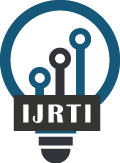|
International Journal for Research Trends and Innovation
International Peer Reviewed & Refereed Journals, Open Access Journal
ISSN Approved Journal No: 2456-3315 | Impact factor: 8.14 | ESTD Year: 2016
Scholarly open access journals, Peer-reviewed, and Refereed Journals, Impact factor 8.14 (Calculate by google scholar and Semantic Scholar | AI-Powered Research Tool) , Multidisciplinary, Monthly, Indexing in all major database & Metadata, Citation Generator, Digital Object Identifier(DOI)
|
Issue: December 2025
Volume 10 | Issue 12
Review Result and Publication of Paper within : 2-3 days
Click Here For more DetailsFor Authors
Forms / Download
Published Issue Details
Editorial Board
Other IMP Links
Facts & Figure
Impact Factor : 8.14
Issue per Year : 12
Volume Published : 10
Issue Published : 115
Article Submitted : 19696
Article Published : 8087
Total Authors : 21392
Total Reviewer : 770
Total Countries : 147
Indexing Partner
Licence
This work is licensed under a Creative Commons Attribution-NonCommercial 4.0 International License







|
Published Paper Details
|
|
| Paper Title: | Modelling and Analysis of a Photovoltaic Fuel Cell Hybrid and Standalone System |
| Authors Name: | Neha Rajani , Ashraf Jafri |
| Download E-Certificate: | Download |
| Author Reg. ID: |
IJRTI_181492
|
| Published Paper Id: | IJRTI2104018 |
| Published In: | Volume 6 Issue 4, April-2021 |
| DOI: | |
| Abstract: | It has been well-proven that a physical phenomenon power supply must be integrated with different power sources, whether or not utilized in either an entire or grid-connected mode. Stand-alone power systems are very fashionable, especially in remote sites. The system under study during this dissertation may be a stand-alone hydrogen PVFC hybrid installation, which is constituted of a photovoltaic generator, an alkaline water electrolyser, a proton exchange membrane (PEM) electric cell, a brief term super capacitor storage, and gas storage tanks. this method is meant to be a future competitor of hybrid PV/Diesel systems, especially from an environmental point of view (low noise and nil emission) and operational costs point of view. The reduced scale mitigates loss allowing the power produced to do more with better control, giving greater security, reliability, and design flexibility. This paper explores the performance and cost viability of a hybrid grid-tied microgrid that utilizes Photovoltaic (PV), batteries, and fuel cell (FC) technology. The concept proposes that each community home is equipped with more PV than is required for normal operation. As the homes are part of a microgrid, excess or unused energy from one home is collected for use elsewhere within the microgrid footprint. The surplus power that would have been discarded becomes a community asset, and is used to run intermittent services. |
| Keywords: | Hybrid system, photovoltaic, fuel cell, standalone system |
| Cite Article: | "Modelling and Analysis of a Photovoltaic Fuel Cell Hybrid and Standalone System", International Journal of Science & Engineering Development Research (www.ijrti.org), ISSN:2455-2631, Vol.6, Issue 4, page no.110 - 114, April-2021, Available :http://www.ijrti.org/papers/IJRTI2104018.pdf |
| Downloads: | 000205107 |
| ISSN: |
2456-3315 | IMPACT FACTOR: 8.14 Calculated By Google Scholar| ESTD YEAR: 2016 An International Scholarly Open Access Journal, Peer-Reviewed, Refereed Journal Impact Factor 8.14 Calculate by Google Scholar and Semantic Scholar | AI-Powered Research Tool, Multidisciplinary, Monthly, Multilanguage Journal Indexing in All Major Database & Metadata, Citation Generator |
| Publication Details: |
Published Paper ID: IJRTI2104018
Registration ID:181492
Published In: Volume 6 Issue 4, April-2021
DOI (Digital Object Identifier):
Page No: 110 - 114 Country: bhilai, Chhattisgarh, India Research Area: Engineering Publisher : IJ Publication Published Paper URL : https://www.ijrti.org/viewpaperforall?paper=IJRTI2104018 Published Paper PDF: https://www.ijrti.org/papers/IJRTI2104018 |
| Share Article: | |
|
Click Here to Download This Article |
|
| Article Preview | |
|
|
|
Major Indexing from www.ijrti.org
| Google Scholar | ResearcherID Thomson Reuters | Mendeley : reference manager | Academia.edu |
| arXiv.org : cornell university library | Research Gate | CiteSeerX | DOAJ : Directory of Open Access Journals |
| DRJI | Index Copernicus International | Scribd | DocStoc |
ISSN Details
 |
 |
ISSN: 2456-3315
Impact Factor: 8.14 and ISSN APPROVED,
Journal Starting Year (ESTD) : 2016
DOI (A digital object identifier)
 Providing A digital object identifier by DOI.ONE How to Get DOI? |
Conference
Open Access License Policy
Important Details
Join RMS/Earn 300
WhatsApp
Click Here
Click Here
Indexing Partner |
|||
| Copyright © 2025 - All Rights Reserved - IJRTI | |||






